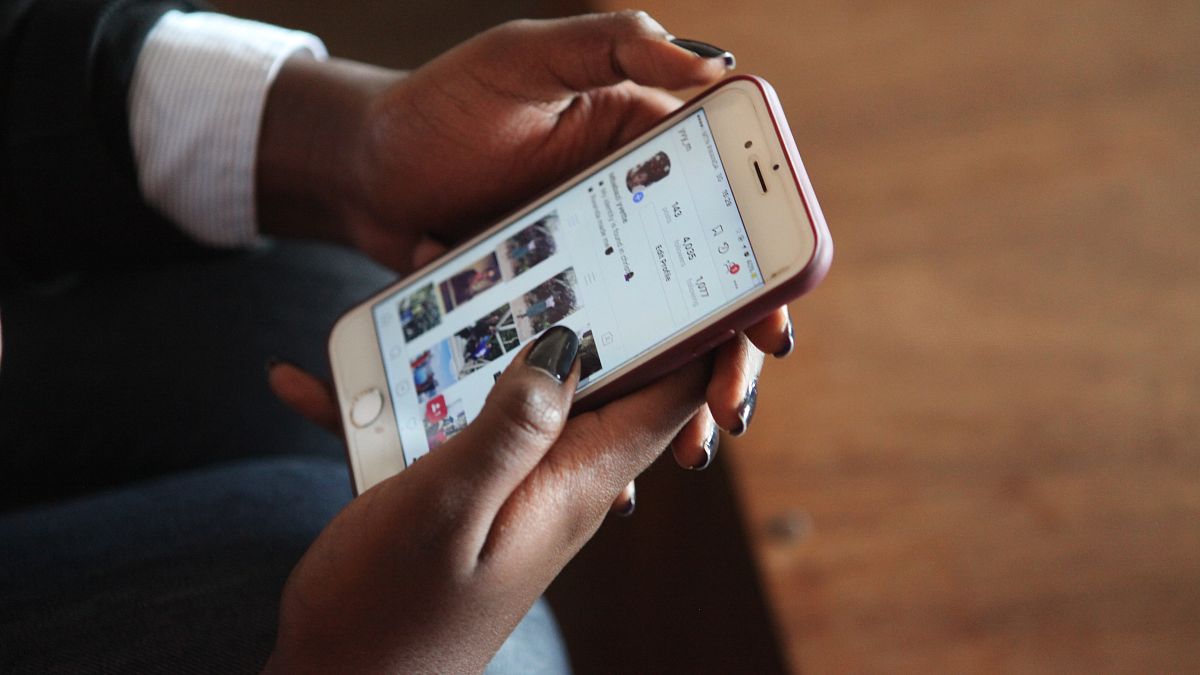More than 30 activists have written to Meta to demand more action.
Iranian feminists have written a complaint letter to Meta after their Instagram accounts were flooded with fake profiles.
More than 30 people have called on the Big Tech company to take action after they were targeted in a "coordinated cyberattack".
"We ... have been exposed to an unprecedented attack on Instagram and Facebook," the letter from June reads. "The bots swarmed our social media pages in order to temporarily disable them."
Many of the activists say they have received hundreds of thousands of Instagram followers in just one day.
According to the non-profit Qurium, the fake followers have been traced to at least two social media marketing firms in Pakistan, but it is still unclear who is behind the bot campaign.
"It's a sophisticated and intelligent campaign to take one of the defining features of this platform which is high follower count and weaponise it against this group," said Mahsa Alimardani, a Senior Researcher with Article19 and PhD candidate at the Oxford Internet Institute.
Almost all of the signatories of the letter are connected to Iran’s #MeToo movement, which began in August 2020 and denounces cases of sexual assault and harassment in the country.
The flood of bot accounts has forced many activists to make their accounts private, limiting their online reach and engagement.
Some activists told Euronews they feared that their Instagram account could be blocked because they collected too many fake followers in a short space of time, which the platform could do if it notices inauthentic activity.
Sarah Afrasiabi, who has nearly 75,000 followers, said she was concerned that feminists in the country had received online threats.
"I got more than 60,000 fake followers ... I can see that they lower my page engagement so my new post doesn’t reach my real followers."
"It's important for us [activists] to connect with each other and build a strong network for protesting ... I believe that these cyberattacks show that we did a good job."
Instagram is the only major social network that isn’t censored in Iran, making it hard for activists to transfer their social media following to another platform.
Meta told Euronews that they are taking the activists’ claims seriously and are continuing to investigate any abusive behaviour.
“We want everyone to feel safe on Instagram -- particularly activists, both in Iran and around the world," a Meta spokesperson said.
"Our teams are looking into the claims made in this letter and will take action on any accounts that break our rules.”
Instagram prohibits harassment and inauthentic behaviour under its detailed Community Guidelines.
The Big Tech giant has previously been criticised for a lack of transparency when it takes action on inauthentic accounts.
"Meta has a responsibility to do more and to clearly allocate more resources to where it sees problems," said Alimardani.
"How they decide to prioritise which country and which problem is clearly political or profit-driven," she told Euronews.
"Instagram is crucial for any kind of campaign work, so this [cyberattack] diminishes any kind of reach and impact on this platform which is so central to communications and information in the Iranian context. It’s a heavy blow to any kind of activism," said the digital rights expert.
A report by the Atlantic Council in January found that the Iranian government’s intelligence and security services have recently used "state-sponsored troll armies to silence dissidents".


